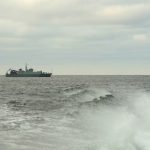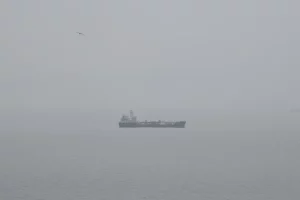NATO: Russian Navy has degraded and is forced to protect its own shipping in the Baltics

This has significantly reduced the Russian fleet’s ability to operate in other regions, including the Black Sea.
The Russian Navy is forced to refocus resources on protecting its own shipping in the Baltic Sea, which indicates its degradation and limited actions on a global scale. This is reported by “Military” with reference to an unnamed NATO representative.
Thus, against the backdrop of Operation Baltic Sentry, which is ongoing in the Baltic Sea, Russia is spending a significant part of its forces on escorting merchant ships, trying to secure its own logistics.
“Today, Russia has only a few ships in the Mediterranean Sea – largely because it has lost port access and cannot transfer forces there from the Black Sea. The Black Sea Fleet itself is also seriously degraded,” the Alliance representative noted.
Russian sailors are forced to constantly patrol the Baltic, as NATO allies provide round-the-clock monitoring of the maritime space, making thousands of radio calls to merchant ships within the Baltic Sentry. This has reduced the activity of the so-called shadow fleet, which is used to circumvent sanctions.
“Regardless of whether a ship is operating legally or not, its crew is willing to avoid risks. Operation Baltic Sentry has probably deterred some of the malicious activity,” the official said.
Baltic Sentry has also become a platform for testing innovative technologies in the field of maritime security. Last summer, NATO allies tested unmanned surface vessels, and are now integrating new sensors and artificial intelligence algorithms to constantly monitor the movement of ships in the Baltic Sea.
“We are experimenting with software that helps to more quickly identify the “life patterns” of shipping and respond to suspicious activity. In these respects, Baltic Sentry is considered a successful initiative,” the military representative emphasized.
The official stressed that security in the region is not static, so the Alliance plans to maintain Operation Baltic Sentry on an ongoing basis as an element of the long-term maritime security architecture in Northern Europe.
Earlier, Estonia announced its intention to grant its defense forces the right to use military force against merchant ships if they threaten submarine cables or other critical infrastructure – another step in strengthening NATO’s regional maritime security.
Also, the day before, USM reported that Russia had disrupted the deadlines for the construction of tankers and ships for the Northern Sea Route.





